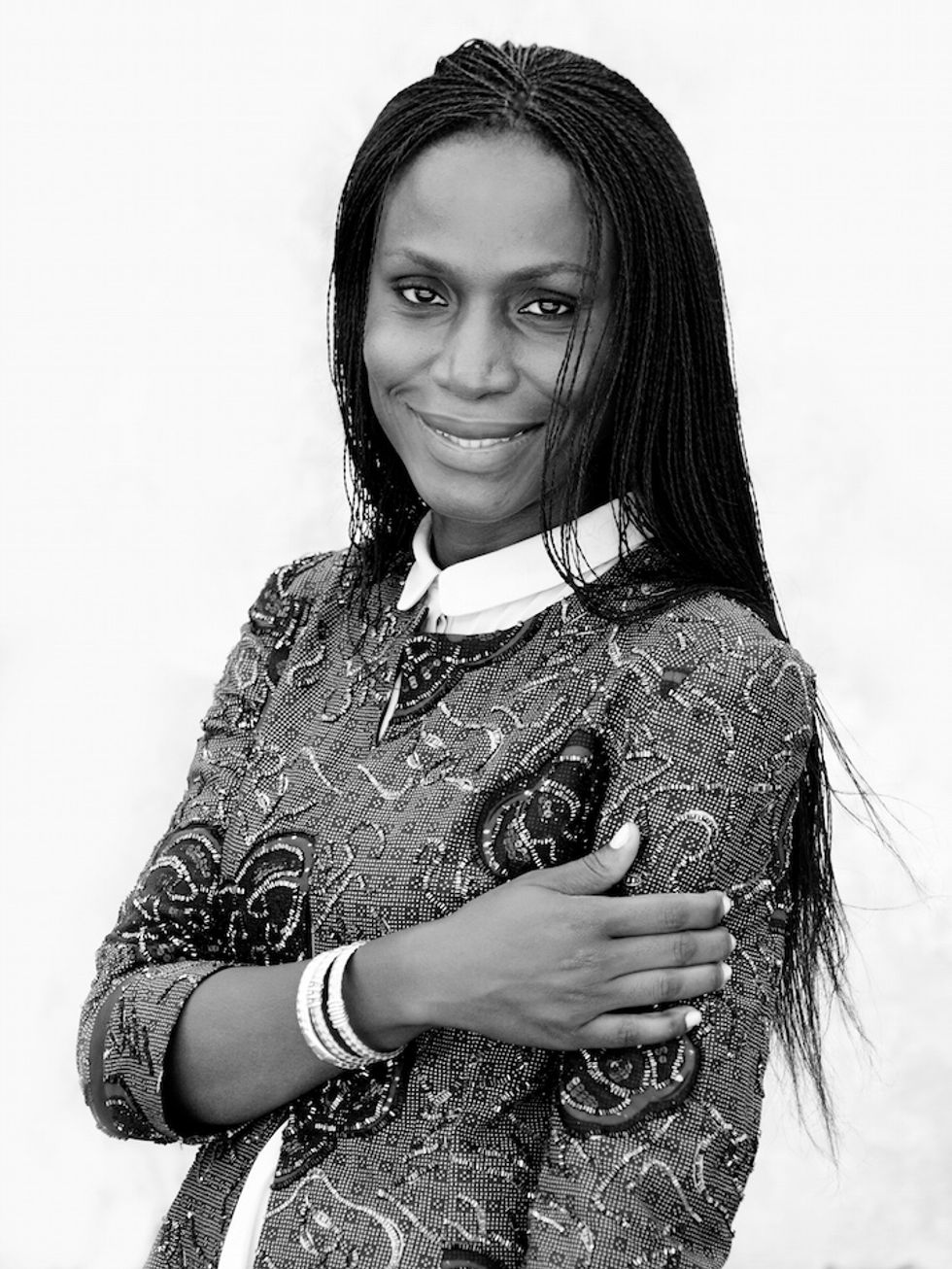Meet The Nigerian Lawyer-Turned-Style-Powerhouse Who's Turning Lagos Into A Fashion Hub
Nigerian fashion power player Omoyemi Akerele speaks to Okayafrica on the heels of the 2015 Lagos Fashion & Design Week.

Omoyemi Akerele (Photo Credit: Claudio Bonoldi)
Omoyemi Akerele has an impressive resume. As the founder of Lagos Fashion & Design Week (LFDW), the lawyer-turned-style-powerhouse is widely credited as being a pivotal force behind the Nigerian fashion industry. Her development agency, Style House Files, works with Nigerian companies on brand positioning and retail strategies. Even though her tenacity and strong work ethic have led to success, she jokingly says that she should have taken the easy way out. “It's a lot of work and it never ends.”
In just five short years, Akerele has managed to turn LFDW into a full-on, four day fashion fête boasting almost 70 designers at their most recent Spring/Summer collection. What makes this year special? “Five years ago it was about trying to get people to understand that fashion is a business,” Akerele tells us. “We had a more laid back attitude towards fashion. It was more entertainment-geared or presented as the idea of fashion as entertainment a bit more versus the idea of fashion as a business. For us, that's something that's changed.”
Fittingly, this year's event was more of a celebration, says Akerele. “It's just a year that we decided to focus on celebrating–and when I say celebrating, it means celebrating the industry and celebrating the baby steps that we have made. The industry is not what is was five years ago when we came on the scene” says Akerele.
She adds “When we look at the structure of LFDW as a whole we are also evolving and sort of coming into our own. We realize that there is a conscious need to focus on contributing to other areas that will nurture or position LFDW for greater success. Be it the areas of manufacturing or working with stakeholders to help designers have easier access to finance or getting the designers together a lot so they can share ideas, brainstorm and network.”
In New York City, fashion week is exclusively for media, bloggers, buyers, socialites. Getting a ticket for the average person is near impossible. In Lagos, however, the fashion spotlight is squarely on the consumer. “We have to make it open to the public. They are the one's buying, they are the consumers of fashion. They walk into the designer’s studio to do all the shopping and the buying.”
Ejiro Amos Tafiri At Lagos Fashion And Design Week 2015. Photo: Kola Oshalusi (Insigna)
For designers on the continent, in addition to struggling with manufacturing, agonizing startup costs and a host of other issues, one of their biggest pain points is competition from larger brands making their way into Africa. Think of lower-priced brands such H&M and Forever 21. How can designers compete? According to Akerele, though, there's room for everyone. “We need to ensure that production, manufacturing and distribution is in place for designers, and that consumers understand the need to support Nigerian designers or brands,” she says. “At the same time understanding that it's OK to support international brands. It would be really cool to see how people mix and match.”
Considering that fashion is still a niche industry in Nigeria, it's not surprising that sponsorship is an integral part of making the shows happen. "It's easier to raise sponsorship for music and sports–there's still that mentality that fashion is frivolous," Akerele says. "It's tough trying to get people to understand that we are trying to do is different and that it's not just about getting designers together and then just moving on. We cannot do anything without a sponsor. From trying to get a venue, to production, to models needing to get paid , hair and makeup—it's a lot of money.” For the 2015 edition of LDFW, Akerele & co. teamed up with with Heineken. “It's beyond sponsorship it's about a partnership. How can we all come together to help build this industry and take it to the next level?”
A recurring theme throughout our chat with Akerele was her goal to turn Nigeria into a fashion hub. “It's about the industry, it's the bigger picture. It's about everyone coming together to do what they need to do for this to work. If you think in isolation about what you need to do you will never get there.”
Makho Ndlovu is a Zimbabwean born blogger living in New York City. Follow her on Twitter at @MakhoNdlovu.



